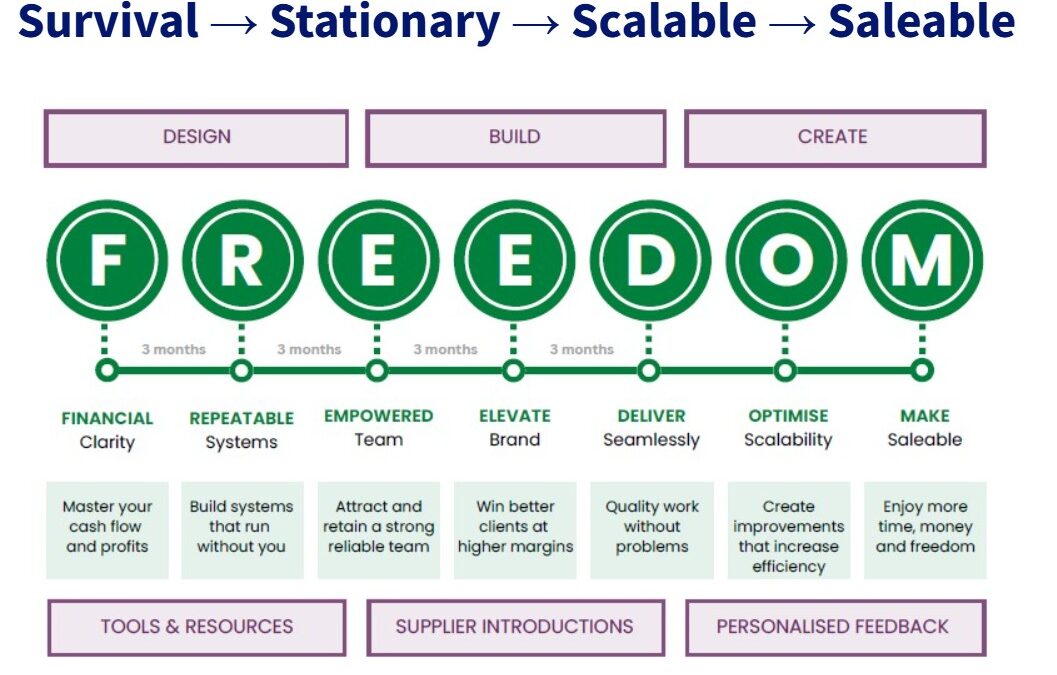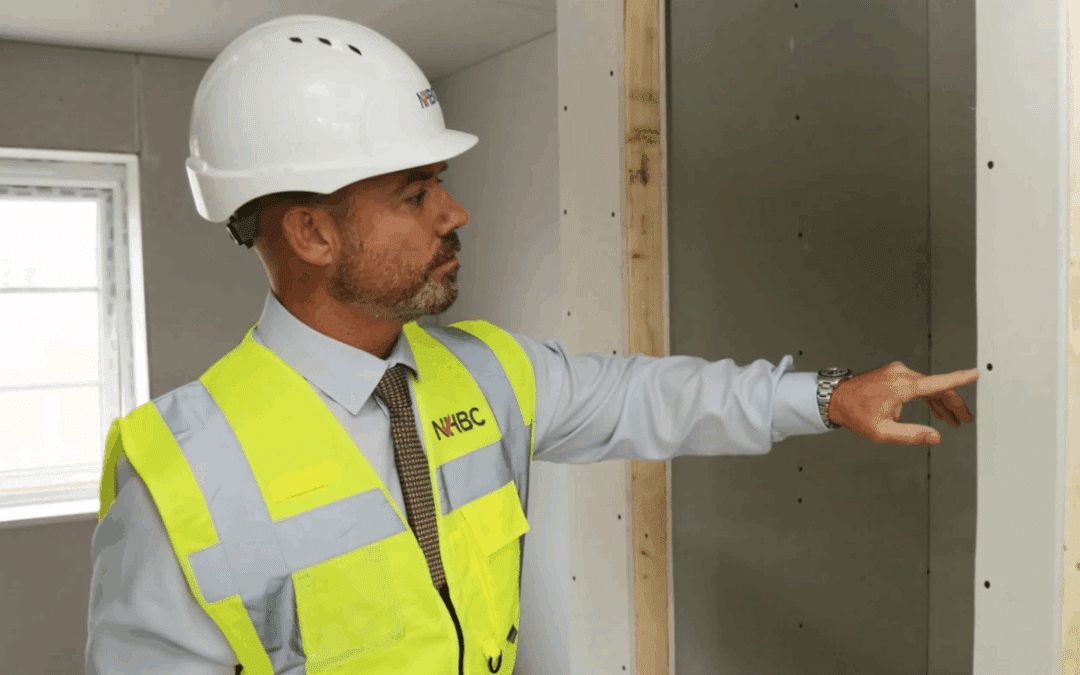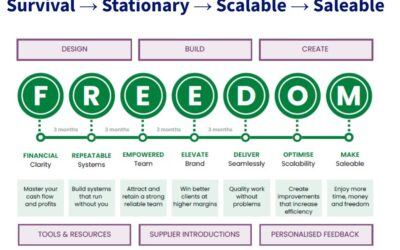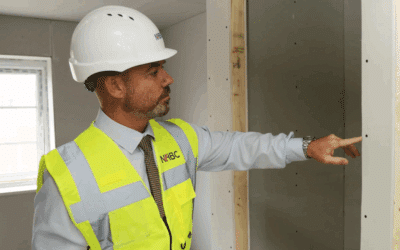
by Clair Mooney | 12 Sep, 2025 | Awards
The FIS Scottish Awards are a celebration of the exceptional work and diverse range of projects carried out in Scotland. On 12 September, the awards ceremony was held at the impressive voco Grand Central Glasgow. The event was hosted by ex-professional referee John Rowbotham and was well-attended, with guests eagerly anticipating the announcement of this year’s winners.
The ceremony began with a short speech from FIS Chief Executive Iain McIlwee followed by a welcome address from FIS President Ian Strangward who highlighted the organisation’s activities in 2025 and plans for the future.
After a fantastic three-course lunch, the presentation of the awards began. The winners were as follows:
Specialist Installation category:
- Gold Award: Linear Projects for its installation at the W Hotel in Edinburgh
- Silver Award: Indeglas for its installation at the Haymarket Buildings in Edinburgh
Interior Fit Out category
- Gold Award: MPACT Group for its installation at Virgin Money in Glasgow
- Silver Award: Clansman Interiors for its installation at Future Beauty Labs in Glasgow
Project of the Year
- MPACT Group for its installation at Virgin Money in Glasgow
Apprentice of the Year: Josh Markie of Brian Hendry Interiors
Lifetime Achievement Award: Mike McLaughlin, former Managing Director of Roskel
Posthumous Lifetime Achievement Award: Ricky Spinelli, former Managing Director Roskel
Congratulations to all our winners, and to everyone who entered.

by Iain McIlwee | 11 Sep, 2025 | Main News Feed

by Oscar Venus | 4 Sep, 2025 | Drylining, Skills
FIS and its members have collaborated with the National House Building Council (NHBC) and HBF to launch a new series of drylining masterclasses aimed at improving skills, quality, and compliance within the construction industry.
These Dry Lining Masterclasses are designed to deliver practical skills and knowledge on the most common dry lining issues found by our inspection teams.
Developed to support both new entrants and experienced professionals, these practical training sessions will be delivered at NHBC’s network of training hubs. The programme is designed to raise standards across the drylining trade, a critical element of modern building interiors that often lacks structured training opportunities.
The Dry Lining Masterclass content has been tailored to cover the following key areas:
- defect statistics
- when dry lining and plasterboard can start
- plasterboard fixings
- dry lining
- fire safety
- sound insulation
- consistent approach to finishes.
This joint initiative supports wider efforts to address the growing skills shortage in the construction sector and reflects a shared commitment to driving up standards across UK housing and commercial developments.
By enhancing knowledge and practical capability in drylining, the training aims to improve quality, boost productivity, and help build a more competent workforce.
To access/book onto the courses or to find out more click on the following links
Dry Lining Masterclass – NHBC
Dry Lining Masterclass open course – NHBC

by Oscar Venus | 29 Aug, 2025 | Technical
BS EN ISO 9001 (quality management systems, requirements) is currently under review by BSI and has been circulated for public comment.
Members can use the link below to login to the BSI portal or create a free BSI account, download a copy of the draft revised standard and submit comments through the portal.
British Standards Institution – Project
Key proposed updates include:
- Changes to requirements
- Clearer structure and terminology for improved usability
- Clarification of requirements in Annex A (informative)
The consultation is open until 20th October 2025 and we are encouraging all our members to either comment directly or engage with the FIS team if they have questions about the standard and would like to inform an FIS response.
FIS hosts regular meetings with an organisational capability working group comprised of members who will discuss this review alongside other subjects and members are welcome to get involved with this work.
Please contact jamesparlour@thefis.org or greggreves@thefis.org if you have questions of would like to get involved in any of the above.

by Oscar Venus | 29 Aug, 2025 | Skills
FIS has submitted a formal response to Ofqual’s consultation on proposed reforms to apprenticeship end-point assessment (EPA), raising concerns over the potential risks to assessment quality, consistency, and the readiness of the sector to adapt.
The consultation, which closed on 27 August 2025, outlines a new regulatory framework intended to modernise apprenticeship assessment by moving away from the traditional EPA model. The proposed system places greater emphasis on flexibility, streamlined assessment plans, and increased involvement from employers and training providers.
Earlier in the year, DfE brought in several apprenticeship reforms. The reforms were meant to “slash red tape” and introduce shorter and more flexible apprenticeships. Most reforms are understandable, but the reforms to the assessment process is causing industry-wide concerns.
A set of 5 pilots were run by Skills England with the intention of proposing assessment reforms and taking on feedback. Occupations from healthcare, IT, construction and others were selected, with Site Carpentry & Joinery installers identified for construction. Whilst this sector group is part of the pilot, these changes will impact all of the trades and installer occupations and will likely impact other occupations across the country.
While the key issues are outlined below, the way the pilots have been conducted, a poor consultation process, and the potential negative impact on apprenticeships, raises serious concerns.
Key impacts:
- An impact on the Construction Skills Mission Board to deliver against all priorities
- Apprenticeships will not meet the competence requirements set out in the Building Safety Act 22 which may result in a very real reduction of competent people in our industry.
- The construction sector will be increasingly unable to deliver essential skills through apprenticeships. Industry will likely remove apprenticeships from existing frameworks altogether, including potential calls to decouple CSCS cards from apprenticeship pathways. Without immediate intervention, apprenticeship uptake for construction is at serious risk of collapsing entirely
The perceived issues:
- Assessment bodies are likely to be Awarding Organisations (AO’s) or training providers:
- Assessment organisations will be able to create the assessment based on their own thinking.
- The level of detail in the assessments is now going to be set by the assessment organisations.
- If there are multiple assessment organisations, this will create varying levels of assessment, based on the organisation.
- We believe this will reduce the level of competence validation of those going through the assessment.
- Under the reforms, the New Assessment Plans have a different purpose to the current End Point Assessment Plan. The new proposed assessment plan will:
- Digital assessments will be prioritised. With a practical trade like Installers, where they physically have to demonstrate competence (stairs, fire door install), digital assessments will not work.
With regards to the pilot consultation sessions:
- Invites to the pilot meeting were issued 2 days before the meeting, with non-attendance resulting in feedback not being taken on board
- Information for the meeting being issued less than 24 hours before the meeting, with no time to review and comment
We understand that Skills England have been asked to implement these principles within the boundaries of the apprenticeship reforms.
If you have any feedback or queries, please contact beenanana@thefis.org

by Oscar Venus | 29 Aug, 2025 | Events, Health and Safety
Learning for Everyone
The Lighthouse Wellbeing Academy provides a flexible, accessible approach to learning designed to support the mental health and wellbeing of everyone in the construction industry.
Their Courses include self-paced eLearning, live online Wellbeing Exclusives led by expert tutors, and accredited Mental Health First Aid (MHFA) courses.
Whether you’re a site operative, project manager, or office-based professional, there’s a course tailored to your needs. From soft skills development to industry-recognised MHFA qualifications, the Academy will support your journey toward better mental health.
Best of all, most of the training is completely free, because positive cultural change starts with accessible education.
For more information, please see the link below or contact Marie Flinter at FIS:
Wellbeing Academy – Lighthouse Charity

by Oscar Venus | 28 Aug, 2025 | Technical
The Government has updated its guidance under the Fire Safety (England) Regulations 2022, clarifying expectations around fire doors in residential and multi-occupied buildings.
The revised guidance, published in August, reinforces that fire doors do not necessarily need to be replaced if they met the requirements of Building Regulations at the time of installation and have since been appropriately inspected and maintained.
This update is intended to provide reassurance for building owners, managers, and residents, while underlining the importance of regular checks to ensure that fire doors remain in good working order.
FIS is reminding members that compliance is not just about product selection, but also about inspection, maintenance and record-keeping. Routine checks should be carried out in line with the regulations, and residents provided with clear information on the role of fire doors in maintaining building safety.

by Iain McIlwee | 27 Aug, 2025 | Main News Feed
On 1st July 2025 Build UK published Version 5 of the
Common Assessment Standard (CAS). Significantly the
Building Safety section, introduced in 2024, will now become
mandatory for all FIS Members undertaking regulated design or building work (not just Higher Risk Buildings).
Principal Contractors are advising that Specialist Contractors in their supply chain should have successfully completed the Building Safety section by 1 October 2025.
What does this mean to FIS Members?
If your company is already CAS certified through one of the recognised Pre Qualification Questionnaire (PQQ) providers (e.g CHAS, Constructionline, Achilles etc), you will need to complete the new mandatory Building Safety question set as part of the updated overall question set the next time you renew or go through the certification process with a Recognised Assessment Body.
The Common Assessment Standard continues to gain traction across public and private sector clients as a key tool to demonstrate organisational capability and compliance under the Building Safety Act. Certification is required only once via any of the Recognised Assessment Bodies, and businesses are encouraged to review their current accreditations to avoid duplication and reduce unnecessary bureaucracy in pre-qualification.
FIS has (since Version 5 was published) been invited to join the working group that sets the standards so members are encouraged to feed any concerns or observations around the existing questions to jamesparlour@thefis.org.
FIS also hosts a mirror group that is, as well as reviewing and feeding into the assessment criteria, helping create resources and guidance to support members in completing this section including an Integrated Management Standard, a Template Building Safety Policy and a range of resources and guidance designed to help complete key questions.
Don’t Duplicate, Data Share!
The Common Assessment Standard is being used by a growing number of organisations across the industry to demonstrate that members of their supply chains have the organisational capability to fulfil their duties under the Building Safety Act. Pagabo and Structure Tone are the latest to specify it, and a full list is on the Build UK website.
Companies that have the Common Assessment Standard from any one of the Recognised Assessment Bodies do not need to obtain certification from any others. Instead, they can agree to share their data at no cost with the other Recognised Assessment Bodies so it is visible to more Contractors and Clients. Don’t duplicate: anyone wishing to see a reduction in the bureaucracy of pre-qualification should be sharing their data rather than getting the Common Assessment Standard from multiple Recognised Assessment Bodies. Giving permission to share your data is quick and simple and will help businesses across the supply chain to save time and money and win work.
If you have been certified through the Common Assessment Standard are being asked to use a specific PQQ procedure, FIS has prepared some specific wording to send to the company requesting and a whistle blowing process to help ensure that companies are not required to hold multiple accreditations.

by Oscar Venus | 22 Aug, 2025 | Technical
The British Standards Institution (BSI) is currently developing a new Publicly Available Specification (PAS) code of practice designed to support the safe introduction of construction products to the market.
The new standard – PAS 2000:2026, Construction products – Bringing safe products to market – Code of practice, aims to inform, complement, and align with the government’s forthcoming reforms to construction product regulation, following the recent Green Paper consultation.
This is an important opportunity for the finishes and interiors sector to help shape a standard that will directly impact how products are designed, assessed, and placed on the market.
The draft is now open for public consultation until 8 September 2025. We strongly encourage FIS members to review the standard and share feedback to ensure it reflects the needs and realities of our sector.
You can access the consultation via the BSI Standards Development Portal. Please note you will need to register for a free BSI account to download and comment on the draft.
If you would like to provide comments through FIS as part of a collective response, please get in touch with us by phone or email – we’d be happy to discuss your views.
Page 1 of 23112345...102030...>Last












